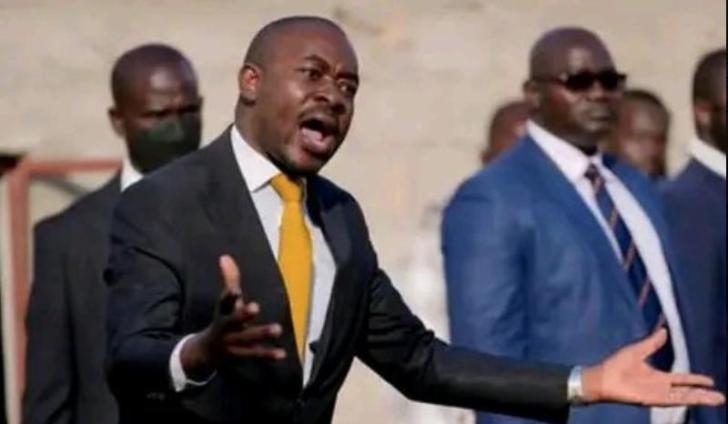News / Local
Zanu-PF focused on making Nelson Chamisa politically irrelevant
05 Feb 2024 at 18:35hrs |
0 Views

Zimbabwe's present political landscape, marked by Zanu-PF's removal of political adversaries and infiltration of opposition forces, is expected to persist until the 2028 general elections, as per a statement by political analyst Eldred Masungure.
In an interview with NewZimbabwe.com, Masungure highlighted that the ruling Zanu-PF party is actively working towards sidelining Nelson Chamisa and shows minimal concern for the Citizens Coalition for Change (CCC). Chamisa resigned from the CCC, citing Zanu-PF's influence and hijacking of the party as reasons.
Following Chamisa's resignation, met with varied reactions, Zanu-PF's Secretary for Information, Chris Mutsvangwa, issued threats of arresting the opposition leader.
Masungure expressed a belief that the current political dynamics would persist until the 2028 elections. He emphasized that Zanu-PF's primary objective is not just to dismantle the CCC as a party but to neutralize Nelson Chamisa as a significant and resilient opposition figure.
Despite Chamisa's departure from CCC, Masungure does not foresee an immediate crackdown on the party, but rather an ongoing pursuit of Chamisa until he is politically marginalized.
He noted that the recent resignations of CCC legislators in solidarity with Chamisa, including former spokesperson Fadzayi Mahere and others, are expected to continue.
Masungure reflected on Zimbabwe's political history since the establishment of the MDC in 1999, highlighting the solidification of a two-party system, despite the presence of smaller, seemingly inconspicuous parties. He underscored the resilience of this two-party system, stating that current events in the CCC do not indicate the demise of this dual-party structure.
Addressing the long-standing ambition to establish a one-party state in Zimbabwe, Masungure remarked that while this idea exists within the corridors of power, the conditions for its realization do not appear favorable in the short to medium term.
The opposition has accused Zanu-PF of orchestrating chaos within the CCC, an allegation dismissed by the ruling party, which attributes the turmoil to the movement's purported 'structureless system.'
In an interview with NewZimbabwe.com, Masungure highlighted that the ruling Zanu-PF party is actively working towards sidelining Nelson Chamisa and shows minimal concern for the Citizens Coalition for Change (CCC). Chamisa resigned from the CCC, citing Zanu-PF's influence and hijacking of the party as reasons.
Following Chamisa's resignation, met with varied reactions, Zanu-PF's Secretary for Information, Chris Mutsvangwa, issued threats of arresting the opposition leader.
Masungure expressed a belief that the current political dynamics would persist until the 2028 elections. He emphasized that Zanu-PF's primary objective is not just to dismantle the CCC as a party but to neutralize Nelson Chamisa as a significant and resilient opposition figure.
He noted that the recent resignations of CCC legislators in solidarity with Chamisa, including former spokesperson Fadzayi Mahere and others, are expected to continue.
Masungure reflected on Zimbabwe's political history since the establishment of the MDC in 1999, highlighting the solidification of a two-party system, despite the presence of smaller, seemingly inconspicuous parties. He underscored the resilience of this two-party system, stating that current events in the CCC do not indicate the demise of this dual-party structure.
Addressing the long-standing ambition to establish a one-party state in Zimbabwe, Masungure remarked that while this idea exists within the corridors of power, the conditions for its realization do not appear favorable in the short to medium term.
The opposition has accused Zanu-PF of orchestrating chaos within the CCC, an allegation dismissed by the ruling party, which attributes the turmoil to the movement's purported 'structureless system.'
Source - newzimbabwe
Join the discussion
Loading comments…































